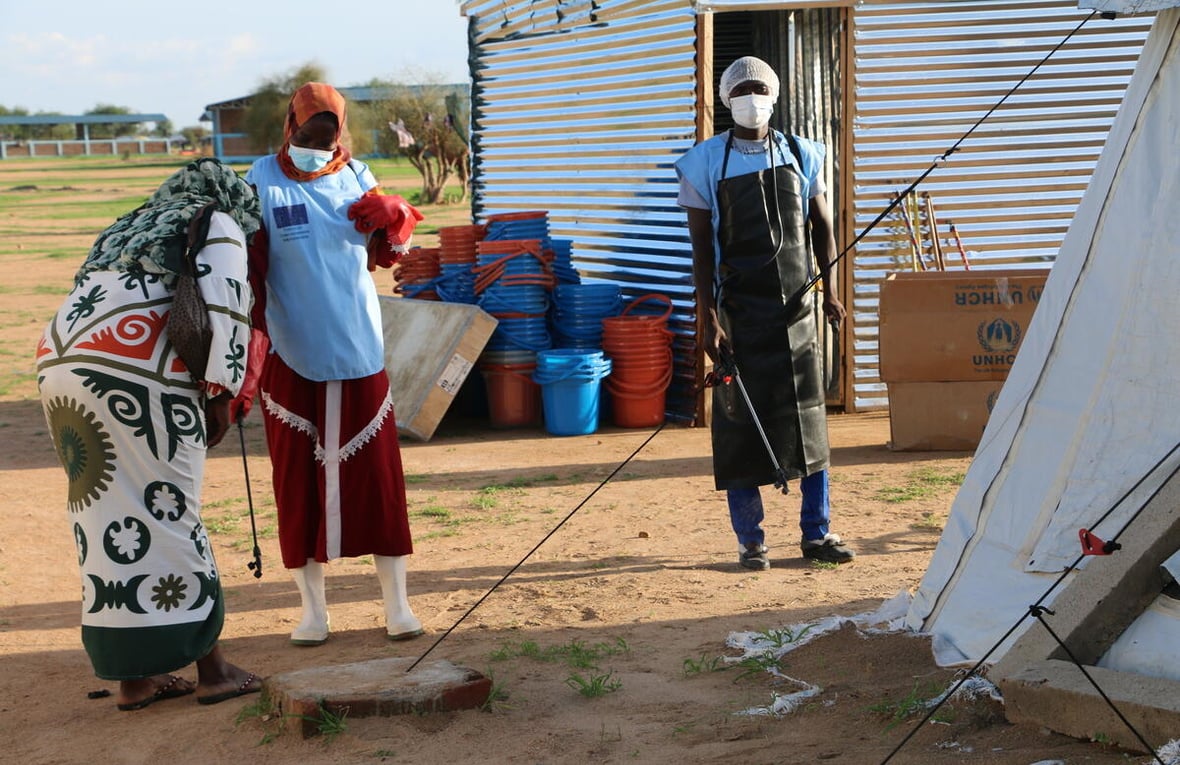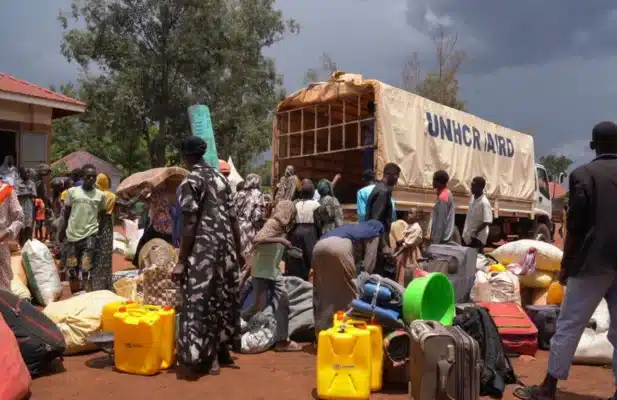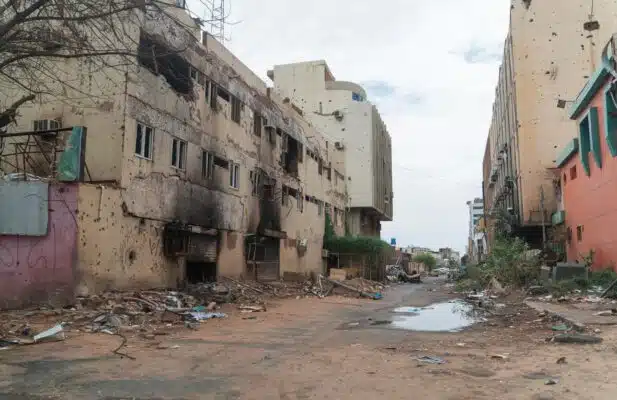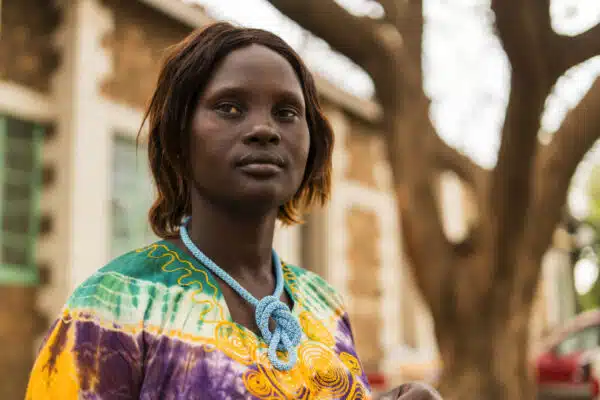
Health workers in Dougui refugee settlement in eastern Chad disinfect premises and handwashing kit facilities to limit the chain of cholera contamination. © UNHCR/Bockarie Kallon
This is a summary of what was said by UNHCR Protection Officer for Darfur Jocelyn Elizabeth Knight, and UNHCR Principal Situation Coordinator for Eastern Chad Dossou Patrice Ahouansou – to whom quoted text may be attributed – at today’s press briefing at the Palais des Nations in Geneva.
GENEVA – A deadly cholera outbreak has hit a refugee settlement in eastern Chad hosting Sudanese arrivals from Darfur, raising alarm over worsening sanitary and health conditions as humanitarian aid dries up.
As of early August, 264 cholera cases and 12 deaths have been reported in the Dougui refugee settlement and surrounding villages. Suspected cases have also emerged in Treguine settlement, also hosting Sudanese refugees.
Border locations, hosting a third of new refugee arrivals, are also at serious risk of transmission as more people continue to arrive from Darfur. In Adre, the largest spontaneous site hosting over 235,000 people, three suspected cases are currently being probed, raising fears of wider spread.
Across the border in Darfur, the situation is even more critical, with over 4,300 cases and 113 deaths reported.
UNHCR, the UN Refugee Agency, urgently calls for an immediate injection of funds to scale up life-saving health, hygiene, water, shelter and nutrition support to avoid a health catastrophe.
Overcrowding in areas hosting the displaced, a lack of clean water, and limited health and sanitation facilities are accelerating the transmission.
In Darfur, many people live in ‘gathering sites,’ often in disused public buildings with insufficient access to essentials such as water and sanitation. Meanwhile, new displacement and brutal attacks continue within Darfur and in the neighbouring Kordofan region, plunging deeper into a living nightmare communities that are already devastated and have been subjected to unspeakable atrocities.
The ongoing fighting has also severely constrained humanitarian access and disrupted aid delivery for over two years. With seasonal rains underway, many roads will be impassable for months, further complicating the delivery of aid. Persistent insecurity has impeded farming, deepening deprivation in areas at risk of famine or already experiencing famine conditions.
In Chad, UNHCR has suspended the relocation of refugees from the border to Dougui as part of cholera prevention and control efforts. We are also working with partners to set up handwashing stations, distribute soap, and disinfect latrines. We have delivered medical supplies and personal protective equipment to health facilities, and health workers are being trained to enhance the identification and surveillance of cases. We are also providing information on prevention and early treatment across the settlements.
Despite rising needs, funding shortfalls are hindering response efforts both in Darfur and eastern Chad.
UNHCR is seeking $130 million in flexible funding to provide life-saving aid to an estimated 800,000 people in Darfur, respond to the ongoing cholera outbreak, relocate 239,000 Sudanese refugees from the Chad-Sudan border, and address key gaps in service provision by the end of 2025.
In Darfur, the required funds will help provide critical relief such as protection services, shelter and household items for the internally displaced and sanitation, hygiene and health infrastructure in refugee sites.
In Chad, decongesting spontaneous sites is a priority to prevent the spread of cholera. UNHCR will intensify efforts to relocate refugees currently at the border into settlements and villages where essential services are available by providing safe transport for 2,000 people daily. UNHCR will also prioritize healthcare, safe drinking water and sanitation facilities, shelter and protection services.
Since the war started in April 2023, over 5 million displaced people are hosted across the Darfur region, including 1.5 million who were internally displaced before the current conflict and over 82,000 refugees mainly from South Sudan.
Over 873,000 Sudanese refugees have fled Darfur and crossed into Chad, now host to the largest number of registered Sudanese refugees since the start of the conflict. One in 3 people in eastern Chad is now a refugee.
For more information, please contact:
- For Sudan, Assadullah Nasrullah, nasrulla@unhcr.org, + 254 113 676 413
- In Chad, Aristophane Ngargoune, ngargoun@unhcr.org, +235 669 8 3792
- In Nairobi, (regional) Faith Kasina, kasina@unhcr.org, +254 113 427 094
- In Dakar (regional) Alpha Seydi Ba, baalp@unhcr.org, +221 77 345 74 54
- In Geneva, Olga Sarrado, sarrado@unhcr.org, +41 79 740 2307
- In Geneva, Eujin Byun, byun@unhcr.org, +41 79 747 8719
Originally published by UNHCR on 8 August 2025





